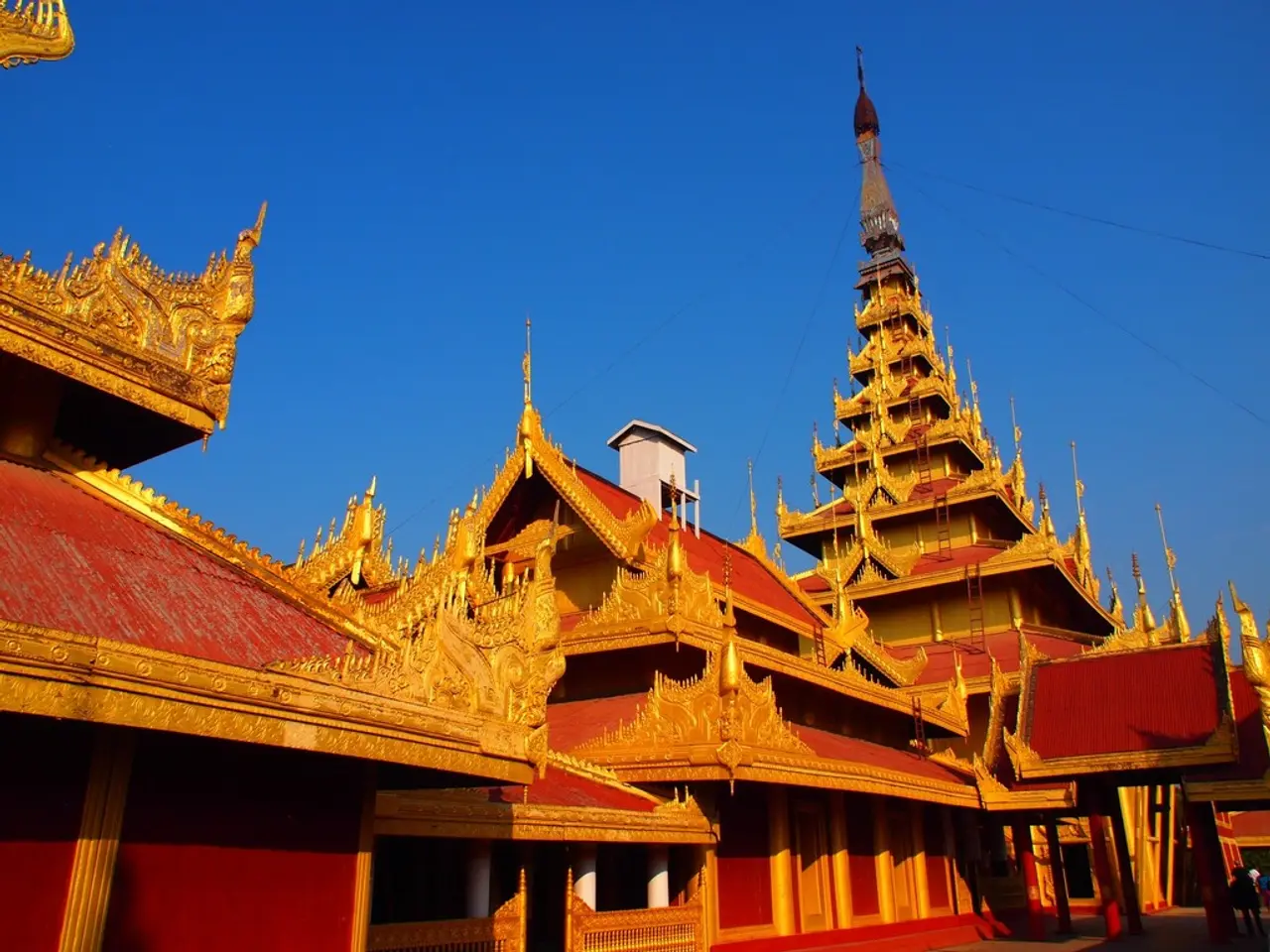International allies support Myanmar's military regime
The Arakan Army (AA), the strongest ethnic armed organization in Myanmar, currently controls almost entirely the northwest state of Rakhine and has announced plans to capture the rest, including the regional capital Sittwe. The AA, which already controls 14 of the 17 townships in Rakhine, is making a significant push to expand its territory.
Meanwhile, the ongoing civil war in Myanmar continues to result in increased displacement of civilians, with the number of internal refugees now reaching at least 3.6 million nationwide. The Kachin Independence Army (KIA) has made new gains in their ongoing attempt to capture the strategically important city of Bhamo, a struggle that has been ongoing since December 2024.
In a separate development, the Karen National Union (KNU), Myanmar's oldest ethnic rebel organization, has recently gained more territory along the Thai border. The KNU, which was designated a "terrorist organization" by the junta's Ministry of Home Affairs on September 3, is one of several ethnic armed groups resisting the military rule in Myanmar.
On the political front, the sham elections announced in the second half of August are set to be held in late December. However, voting will be practically impossible in many areas due to them being held by regime opponents or being hotly contested. All 61 registered parties for the elections, including nine contesting nationally, are considered pro-regime.
Internationally, the regime-friendly media in Myanmar reported that talks with Chinese President Xi Jinping focused primarily on economic issues surrounding the China-Myanmar Economic Corridor (CMEC). Meanwhile, Min Aung Hlaing, the military ruler of Myanmar who holds dual roles as army chief and acting president, met with Indian Prime Minister Narendra Modi on August 31 during the Shanghai Cooperation Organization summit in Tianjin, China. The images of their handshake made headlines worldwide, and Modi posted on X that India considers Myanmar an important partner.
However, not all international support is in favor of the Myanmar military junta. Several ASEAN countries, including Vietnam and Malaysia, support the junta through business partnerships and economic ties despite severe human rights violations. Vietnamese Viettel and Malaysian ENRA Group provide telecommunications and energy services that financially benefit the junta, undermining sanctions and diplomatic isolation efforts. The junta thus maintains access to resources and international connections mainly via these ASEAN-associated companies, although many Western and other countries impose sanctions and exclude the junta from diplomatic engagements.
The ongoing conflict in Myanmar also threatens existing and planned Chinese investments. The junta's ongoing crackdown on ethnic armed groups and civilians has raised concerns among investors about the stability and safety of their investments in Myanmar.
As the civil war in Myanmar continues, the international community must carefully navigate their relationships with the Myanmar military junta, balancing economic interests with human rights concerns and diplomatic isolation efforts. The plight of the Myanmar people, displaced and living in refugee camps, remains a pressing issue that demands attention and action from the international community.
Read also:
- Worsened post-flood disease outbreak in the Philippines due to inadequate infrastructure planning, according to industry experts
- Preparations underway amongst European countries for a prospective age of international chaos
- Trump advocates for the withdrawal of two candidates to create a one-on-one mayoral race between him and Mamdani in New York City
- "Father, battling illness, laments the loss of compassion as he learns that support for his autistic son in school will no longer be provided"








